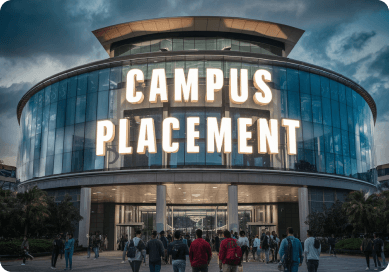Enter OTP



Paris, France

Paris, France

Cost Of Living

Undergraduate Fees International Students

Post Graduate Fees International Students

The unique strength of Paris Diderot University lay in its rare ability to blend scientific inquiry with deep humanistic scholarship. Unlike many universities that specialize in either humanities or sciences, Paris Diderot offered an interdisciplinary education, allowing students to study across boundaries such as psychoanalysis, linguistics, probability, and medicine. It was also renowned for being a birthplace of major developments in probability theory and psychoanalysis in France. Its commitment to both fundamental research and socially engaged scholarship set it apart. The university embraced multiculturalism and welcomed international students through Erasmus and other global partnerships. As a founding member of Sorbonne Paris Cité, Paris Diderot further emphasized collaborative research and innovation. Affordable tuition, a high-quality faculty, a central Paris location, and the freedom of thought nurtured by its Enlightenment legacy positioned Paris Diderot as a beacon of accessible yet elite education in France and Europe.
A French politician and former Minister of Territorial Equality and Housing, known for her work on sustainable urban dev... View More
A French politician and former Minister of Territorial Equality and Housing, known for her work on sustainable urban development and as a prominent member of Europe Écologie – The Greens. View Less
Former President of Côte d'Ivoire (Ivory Coast), Gbagbo is a significant political figure in African politics and studi... View More
Former President of Côte d'Ivoire (Ivory Coast), Gbagbo is a significant political figure in African politics and studied history at Paris Diderot. View Less
A well-known French actor and film director, acclaimed for his contributions to French cinema with films like Au Revoir ... View More
A well-known French actor and film director, acclaimed for his contributions to French cinema with films like Au Revoir Là-Haut. View Less
A member of the French National Assembly and key figure in the left-wing political party La France Insoumise, advocating... View More
A member of the French National Assembly and key figure in the left-wing political party La France Insoumise, advocating for education reform and social justice. View Less
Former Minister of Labour, Employment and Social Dialogue in France and mayor of Dijon, known for labor law reforms.
A prominent sociologist and researcher in family studies, gender, and law, she has influenced public policy debates in F... View More
A prominent sociologist and researcher in family studies, gender, and law, she has influenced public policy debates in France. View Less
A political scientist, lawyer, and writer, she played a vital role in promoting feminism and academic thought in France.
Paris Diderot University offered modern infrastructure aligned with the needs of a research-intensive institution. Its main Paris Rive Gauche campus featured contemporary academic buildings equipped with lecture halls, seminar rooms, and research labs. The Halle aux Farines building was a landmark, repurposed from industrial use into a state-of-the-art teaching space. Specialized buildings like Château des Rentiers and Garancière supported faculties like Medicine and Odontology with medical labs and clinics. The university had well-maintained IT infrastructure, Wi-Fi access across campuses, computer labs, and advanced laboratory equipment. Libraries were fully digitized, and the student information systems allowed seamless enrollment, academic tracking, and research access. The campus also included cafeterias, meeting zones, auditoriums, and collaborative working spaces. Accessibility features ensured inclusivity, and campus security ensured safety. Infrastructure at Paris Diderot was designed to encourage creativity, interaction, and academic excellence across all fields of study.
Student life at Paris Diderot University was vibrant and cosmopolitan. The diverse student body brought together learners from across France and around the world, creating a dynamic campus culture. Numerous student clubs and associations organized events ranging from academic conferences to cultural festivals and sports tournaments. Popular clubs included theatre, music, photography, debate, and humanitarian groups. Student unions like UNEF played active roles in campus politics and academic policy dialogue. The Paris Rive Gauche location gave students easy access to Parisian life—museums, galleries, restaurants, and nightlife were just minutes away. Regular film screenings, guest lectures, and workshops enhanced academic and social experiences. The multicultural environment encouraged dialogue, mutual respect, and collaboration. Student-led initiatives often addressed issues like environmental sustainability, human rights, and gender equality. Overall, student life at Paris Diderot combined academic engagement with the cultural richness of central Paris, offering a holistic student experience.


Paris Diderot University offers robust career support services to help students transition successfully from academia to the workforce. The Bureau d’Aide à l’Insertion Professionnelle (BAIP) provides personalized career counseling, resume and interview workshops, and regular job fairs. Students can access internship opportunities, co-op programs, and part-time jobs through university-industry partnerships. The Career Center connects students with recruiters and alumni working across sectors like research, technology, finance, healthcare, and public service. The university also offers professional development courses, networking events, and entrepreneurship training. Strong ties with employers, especially in the Paris region, ensure students benefit from real-world exposure and mentoring. BAIP also supports international career planning with guidance on working abroad. These services equip students with the skills, experience, and confidence necessary for their post-graduate journeys, ensuring they’re well-prepared for employment, further education, or launching their own ventures.
The below information is required while
completing the university application :
a) Online application form
b) ELF B1 or B2 / DALF C1 or C2 Official Certificate
c) Academic contract/learning agreement signed by the pedagogical manager of home university
d) Program specific requirements
Requirements may vary for each program. Please visit the program page for specific requirements.
Know moreParis Diderot University maintained strong academic-industry linkages to support campus recruitment, particularly for graduates in science, IT, healthcare, and social sciences. Though more research-focused than vocational, it offered career placement support through its dedicated career center. Employers regularly visited campus to recruit students for internships, research roles, and full-time employment. Fields like healthcare, data science, academic research, finance, publishing, and education were particularly active in recruiting graduates. The university also encouraged participation in collaborative research projects, which often led to industry exposure and job opportunities. Through internships embedded in master’s programs, especially in fields like medical sciences, psychology, and computer science, students often transitioned smoothly into the job market. Its location in Paris provided access to France’s corporate and government centers, where many Diderot alumni found roles in ministries, hospitals, think tanks, and global organizations headquartered in the capital.



Paris Diderot University boasted significant academic achievements and global recognition. It produced two Nobel Laureates, notably in medicine and physics, and two Fields Medal recipients, marking its influence in both natural and formal sciences. The university was central to the development of probability theory in the 20th century and became a reference in psychoanalytic studies in France. It held strong rankings in disciplines like psychology, medicine, and theoretical physics. Its faculty published influential research across international journals and spearheaded major collaborative European research projects. The university’s student body included future ministers, influential intellectuals, and global leaders. Paris Diderot was also a major contributor to Sorbonne Paris Cité, helping to reshape the Parisian higher education landscape. Its role in developing open and interdisciplinary education in France, while maintaining rigorous academic standards, was a testament to its pioneering role among French public universities.


Collaborated with the National Library of France to showcase research through interactive art.
Six early-career scientists won European Research Council grants for projects in astrobiology and AI ethics.
Thousands of students joined Greta Thunberg-inspired global strikes, pushing the university to divest from fossil fuels.
The university was awarded for its exceptional Erasmus+ exchange performance, fostering student mobility across Europe.
Jean Jouzel (alumnus and researcher) contributed to IPCC reports on climate change, reinforcing the university’s strength in environmental sciences.
Paris Diderot University was a renowned research institution, housing several state-of-the-art laboratories and research units affiliated with CNRS and INSERM. It excelled in research fields such as probability theory, linguistics, psychoanalysis, astrophysics, medicine, and nanoscience. The Laboratoire de Probabilités et Modèles Aléatoires became internationally recognized for pioneering work in modern probability theory. The university also hosted leading research in cognitive sciences, geophysics, and medical imaging. Interdisciplinary centers promoted innovation by integrating research in natural sciences with social inquiry. Collaborative R&D projects were frequently conducted with institutions across Europe, supported by grants from Horizon 2020 and French national programs. Doctoral schools facilitated research training, and students often contributed to published scientific work. Paris Diderot fostered a culture of intellectual exploration, encouraging both fundamental and applied research, making it a critical contributor to France’s position in global academic and scientific innovation.
A rapid and low-cost HIV detection method was developed, ideal for field use in developing regions with limited access to labs.
The linguistics and computer science departments co-developed an AI language model for syntactic analysis, later adapted for translation software.
A team developed synthetic RNA devices for regulating gene expression, used in biomedical research and targeted therapies.

Embark on your educational journey with confidence! Our team of admission experts is here to guide you through the process. Book a free session now to receive personalized advice, assistance with applications, and insights into your dream school. Whether you're applying to college, graduate school, or specialized programs, we're here to help you succeed.
